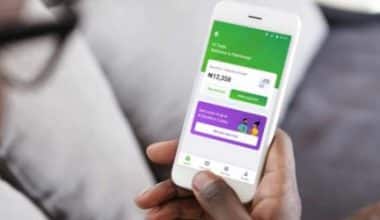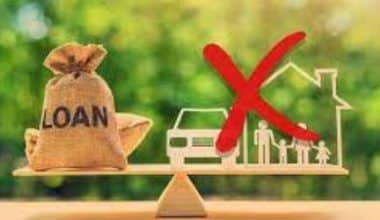Being out of work is one of the most stressful situations anyone can find themselves in. Even though it’s not permanent, it still likely has you worrying about things like finances. Financial hardships can be severe when you lose your job; therefore, a personal loan may look like a good plan of action. Yet, if you’re now unemployed, how can you guarantee that you’ll be able to repay a loan? Even if it may be difficult, it is still feasible to obtain a personal loan while unemployed, especially if you have a stable source of income outside of unemployment and good credit. In this article, we’ll explain ways to qualify for unemployment personal loans and also give you some advice on whether or not this is the best course of action for you.
Can I Get a Personal Loan if I’m Not Working?
Although it may appear that way at first, your eligibility to obtain personal loans has entirely nothing to do with your job status.
So, it is possible to obtain a personal loan without a job, but it will likely be more difficult, and you risk paying higher interest rates. Additionally, lenders will want to know that you have a reliable credit history and a backup income.
In contrast to secured loans like mortgages and vehicle loans, personal loans are not backed by any tangible collateral. Since the lender won’t have any collateral to confiscate if you default on your loan payments because they are unsecured, they often have higher interest rates.
Subsequently is a detailed explanation of how you can qualify for personal loans while you are out of employment.
Ways to Qualify for a Personal Loan While Unemployed
When deciding whether to provide a borrower with a personal loan, lenders look at more than simply their monthly income from work. Here are some potential supplementary sources of income that could strengthen your application for any unemployment personal loans.
Lenders may count Social Security benefits as personal income if you are of retirement age or have a permanent disability and are collecting them.
However, keep in mind that there are caps on both income and assets for those receiving Supplemental Security Income (SSI), a needs-based welfare program for people who don’t qualify for regular Social Security benefits. Although a personal loan is not considered income for tax purposes, the money you borrow can count against your $2,000 resource limit if you receive Supplemental Security Income.
#2. Child Support and Alimony
Proof of sufficient income to repay a personal loan might be shown by regular alimony or child support payments. Proof of your right to receive alimony, child support, and possibly even spousal support is likely to be required.
The Office of Child Support Enforcement in your state can offer documentation of child support payments. Proof of alimony payments may require financial records and a copy of the court order specifying the alimony amount and duration.
#3. Unemployment Compensation
If you are unemployed and receiving state unemployment benefits, you may find it easier to obtain personal loans. Lenders typically want evidence of things like how long you’ve been out of work, how much money you’ve deposited so far, how often you get paid, and how long you can collect benefits in total. Contacting the state from where you receive unemployment benefits should yield all the documentation you need.
#4. Pension / Retirement Income
In the event that you are currently unemployed but have a pension or retirement income, you may still be eligible for a personal loan. Roth IRA contributions, for instance, are completely accessible for withdrawal at any time. No fee is required if you are 59 years or older.
However, remember that if you have retirement accounts, it may be preferable to withdraw the funds from such accounts rather than take out a personal loan, depending on your financial situation.
#5. Spouse’s income
For a personal loan, if you are over the age of 21 and have access to your spouse’s income or assets, you may include them in your application. Your improved ability to secure a personal loan stems from your increased household income.
Hence, get your spouse to cosign for a personal loan if you can’t get one on your own. In addition, make sure they know that if you stop making payments, they will be held responsible.
#6. Rental Revenue
On an application for a personal loan, you can include rent money as a source of revenue. You can also rent out a spare room and count the rent you collect from your roommate as income if you don’t already receive rental revenue.
Be aware that a lending institution may want documentation of this income for a minimum of two years, or a signed lease if the income is from a rental property.
#7. Royalties
Anything from a book, song, movie, or photograph could potentially yield royalties. Royalties can be used as income when applying for a personal loan, regardless of the source of the royalties
#8. Recurring Interest
To qualify for a personal loan, you can include interest income from equities, bonds, or property. Cashing out assets, however, may be preferable to taking out a personal loan if you have enough investments to yield a significant amount of interest. Get in touch with a financial planner to determine what’s ideal for you.
#9. Subsidy for Adoption and Foster Care
When applying for a personal loan, you can include any state subsidies or stipends you get as income if you are a foster or adoptive parent.
Meanwhile, the organization that manages may ask you for the documentation or proof of your stipend. In this case, you can quickly obtain it from the agency managing your subsidy.
How to Get a Loan When No One Gives You One?
If you are unable to obtain cash through a personal loan, you may want to consider using a credit card, obtaining a payday alternative loan through a credit union, or borrowing money from relatives or friends. All of these are viable alternatives. However, these choices aren’t without their flaws: The interest rates on credit cards can be rather expensive. While borrowing money from friends or relatives on the other hand, can be fraught with potential complications.
What Is the Easiest Loan to Get Approved Of?
Payday loans, automobile title loans, loans from pawnshops, and personal loans with no credit check are the types of loans that are the least difficult to get accepted for. People with poor credit histories are eligible to apply for these kinds of loans. This is basically because they provide fast cash and have few restrictions to meet. In most instances, they also come at a very high cost.
How Do I Get Emergency Money?
Emergency money or loans for unexpected expenses usually come in the form of personal loans, cash advances on credit cards, payday loans, loans from pawn shops, and title loans. You can access the money immediately or within a few business days of approval. This, however, depends on which of these choices you decide to go with.
What is Unemployment Personal Loans Documents?
In order to verify your identification, address, and employment status, among other things, a lender will require a number of documents when you formally apply for a personal loan. Financial institutions typically require the following paperwork to apply for a personal loan.
- Loan Application
- Proof of Identity
- Driver’s license
- Birth certificate
- Passport
- Certificate of citizenship
- Other state-issued ID
- Military ID
- Employer and Income Verification
- W-2s and 1099s
- Paystubs
- Bank statements
- returns
- Proof of Address
What App Will Let Me Borrow Money Instantly?
You can borrow a modest amount from your subsequent paycheck with cash advance apps such as Earnin, Dave, and Brigit before you receive the money. If you are in a bind and need cash quickly, this quick fix could be helpful. However, before turning to an app for a loan, it is advisable to examine other, less expensive choices first.
What Is the Safest Way to Get a Personal Loan?
Applying for a loan through a bank or credit union and then shopping around online to find the best interest rate is one of the safest ways or options for financing a significant or unexpected expense. You can generally shop around to receive offers with the best rates and terms. A personal loan is a loan in which you borrow a fixed amount of money and repay it with interest over a specified period. However, before taking out any loan, you should do your homework about the nitty gritty of such a loan. You should also ensure you have the financial wherewithal to make your monthly payments.
In short, here are the 4 safest ways to get unemployment personal loans;
- Bank,
- Credit Union
- Peer to peer lender,
- Online lender
How Can I Get an Instant Personal Loan Without a Salary Slip?
A personal loan, which is an unsecured debt, can be a valuable tool to pay various obligations. In addition to being rapidly approved, no collateral is necessary. However, lenders generally require borrowers’ salary slips due to the absence of collateral.
For salary earners, this isn’t an issue, but figuring out how to secure a personal loan without a salary slip could be challenging for the self-employed. However, if you don’t have salary slips handy, there are still options for getting a quick cash loan;
- Providing an alternate income proof
- Having a good CIBIL score
- Having excellent relations with the bank
- Offer an asset
- Applying together with a different candidate who earns a consistent income
Can I Borrow Money From Cash App?
A feature of the Cash app enables some users to borrow up to $200 in the event of an emergency. Your eligibility is determined by factors such as the state in which you reside and your credit history. Meanwhile, the primary purpose of the Cash App has not changed. It continues to operate as a traditional peer-to-peer payment service that enables users to send money to one another.
What Are the Important Factors to Getting Approved for a Personal Loan?
Lenders have different requirements for personal loans, but there are several factors that financial institutions consistently take into account when considering applications, like credit score and income.
Hence, learn about the typical requirements you’ll need to fulfill and the supporting papers you’ll need to present before you start looking for a loan. These pieces of information may increase your chances of being accepted and make the application process run more smoothly.
In addition, the following are the top five criteria that banks use to decide whether or not to grant a loan.
- Credit Score and History
- Income
- Collateral
- Debt-to-income Ratio
- Origination Fee
Conclusion
Individuals who are in need of financial assistance to cover an expense may find that personal loans are a useful tool. Obtaining personal loans during a period of unemployment is typically far more challenging than obtaining a loan when you have a regular source of income. However, it is not impossible. The primary factor that may make the process more difficult is the inability to provide evidence that you will be able to repay the fund.
Even if you are currently without a job or have an unstable income, it is possible to get authorized for a personal loan. Nevertheless, you should be aware of the fees associated with such loans. It’s also important to evaluate your scenario to make sure a loan is the best option.
If your financial situation is already precarious, taking out a loan you can’t afford could make things much worse.
Unemployment Personal Loans FAQs
What credit score must I have to qualify for a loan?
Generally, in order to get approved for a personal loan, you must have a score of 580 or better.
Which loans don't require income verification?
No income documentation is needed for a no-doc mortgage loan, often known as a no-income verification house loan. As opposed to being a no-income-verification loan, this no-doc option functions similarly to a reduced documentation loan.
What can I pay for with a personal loan?
Unemployment personal loans can be used for anything; however, if you have mounting debt, you may be considering:
- Paying rent or a mortgage
- Ordering food
- Paying for utilities
- Purchasing prescription drugs
Related Articles
- ALIMONY: What Should You Know Before Going Through With It?
- HOW TO GET A LOAN WITHOUT A JOB: Alternatives for People Without Jobs
- LOAN PROTECTION INSURANCE: All You Need To Know
- IF I GET FIRED, CAN I GET UNEMPLOYMENT: Explained!
- ALIMONY TAXABLE: What You Need To Know Before Divorce






